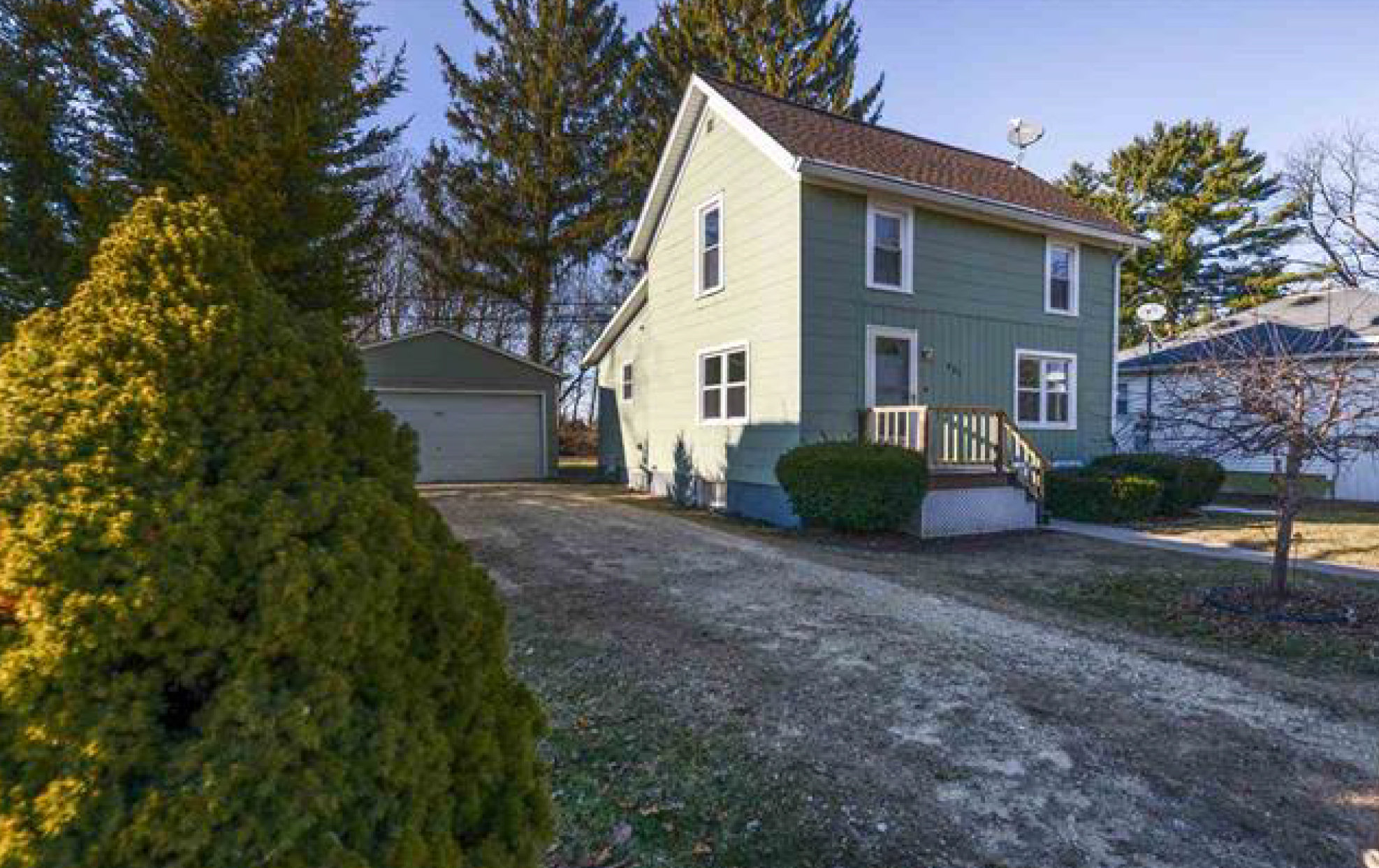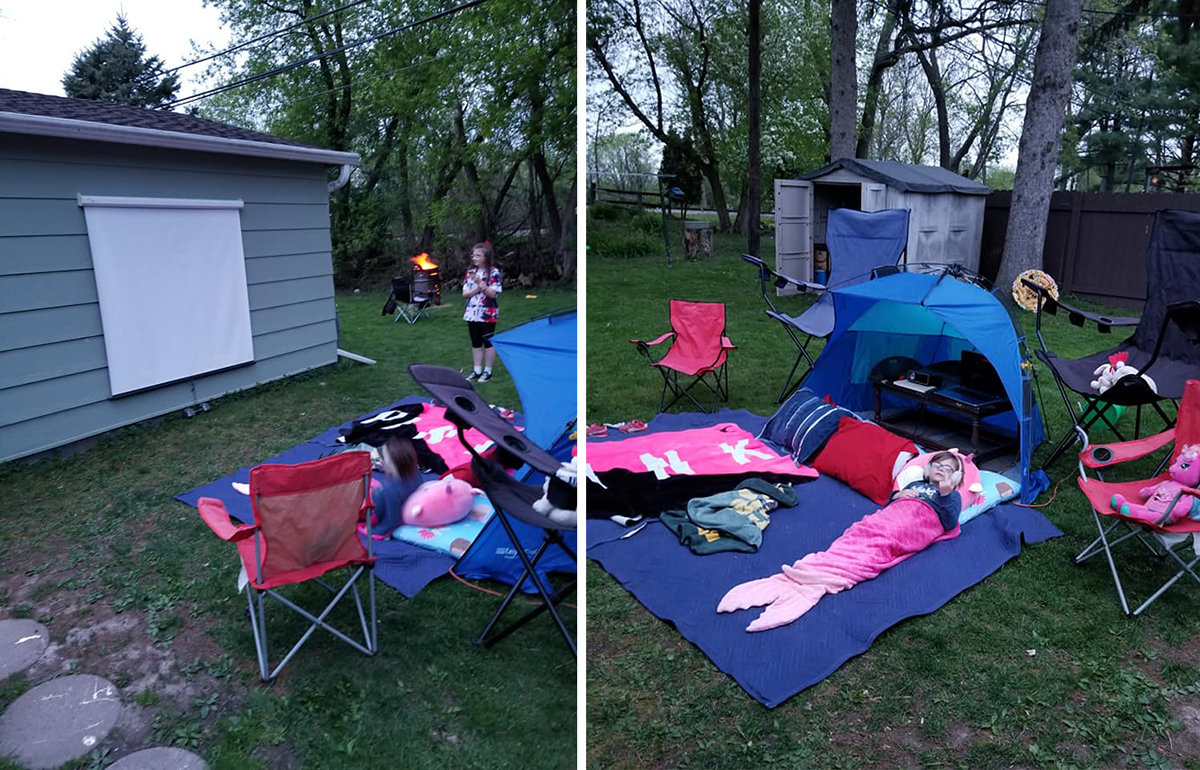Nonprofit Spotlight: Wisconsin Partnership for Housing Development
Posted by Samantha Haas on Monday, June 8th, 2020 at 5:07pm.
As rental rates and home prices rise in Dane County, it’s becoming more difficult for some people to find safe, affordable housing options.
Several local organizations are trying to bring awareness to these issues and make a difference in the community, such as Habitat for Humanity of Dane County, Project Home, and the Dane County Housing Initiative, which you can learn more about on our blog.
 Our newest team member Ann Raschein works with compassion, diligence, and professionalism to ensure that all families have the opportunity to become a homeowner. She volunteers her time on the board of both Habitat for Humanity and Dane County’s Home Buyers Round Table, a group of industry professionals that networks, listens to speakers, and coordinates and facilitates home buying trainings for low- to moderate-income families.
Our newest team member Ann Raschein works with compassion, diligence, and professionalism to ensure that all families have the opportunity to become a homeowner. She volunteers her time on the board of both Habitat for Humanity and Dane County’s Home Buyers Round Table, a group of industry professionals that networks, listens to speakers, and coordinates and facilitates home buying trainings for low- to moderate-income families.
“I go to the meetings every month, and I also present at the education sessions,” Ann said. “The families hear from a real estate agent, lender, and other industry professionals and learn about the home buying process and downpayment assistance programs.”
That’s where she first met Kathy Kamp, who served for 14 years as the executive director of the Wisconsin Partnership for Housing Development (Partnership), a statewide nonprofit that has been dedicated to expanding access to affordable housing options for over 30 years. Ann’s brother also works in affordable housing, so Ann once again found herself crossing paths with Kathy -- this time when she was interviewing real estate agents for the Partnership.
Pictured from left to right during the Oregon home closing in March are: Kathy Kamp, retiring executive director with the Wisconsin Partnership for Housing Development; Sara Whitley, mortgage lender with Old National Bank; Ben Buschmann, homeowner; Ann Raschein, Mad City Dream Homes; and Nicole Solheim, executive director with the Partnership.
A neat partnership
During her tenure, Kathy has been involved in approximately 150 closings throughout the state -- with two or three typically happening each year in Dane County. Over the last decade, she has overseen the development of the mixed-income Uplands subdivision in Sun Prairie, Oak Glen condo units in Madison, and single-family home rehabilitation projects. She has also witnessed how communities such as Middleton, Mount Horeb, Oregon, Stoughton, and Waunakee are trying to address the affordable housing issue from different perspectives.
“Growing the economy is great, but we need to be growing at all levels,” Kathy said.
Since 2018, Ann has collaborated with Kathy and the Partnership to buy single-family homes in Dane County that are distressed or in need of updates and sell the renovated properties to residents who are at or below 80% of the county median income. With Partnership listings, buyers can also qualify for up to $24,000 in downpayment assistance depending on their income level and need.
So far, Ann has been involved with four successful transactions in Madison, Stoughton, and Oregon. Sometimes Partnership listings can sit on the market a little longer, because some of the slightly higher-priced houses may not be on the radar of buyers in this income level if they don’t know about downpayment assistance programs.
“I try to reach out to different agents and call lenders and ask, ‘Do you have a buyer that’s at this income level who’s struggling to find a property?’” Ann said. “I also talk about the properties at the Home Buyers Round Table, because it’s a great opportunity for buyers.”
Ann said sometimes in a competing offer situation, people can be wary of potentially jumping through hoops with buyers who qualify for downpayment assistance -- but she offers assurance to other agents based on her years of experience with these programs. Typically, properties on the market have to go through HQS (housing quality standards) inspection and sellers must make repairs before the property can close, but Partnership homes already fulfill that requirement because the nonprofit does the rehab work before putting it back on the market. Ann has helped guide buyers to a lender that can stack different downpayment assistance programs, and some of her transactions have also involved Movin’ Out, which offers housing solutions for people and families with disabilities. Simply put, you want Ann on your team.
“It’s helpful to work with the same person,” Kathy said. “Ann works on both ends -- she finds homes that are in foreclosure or poor condition, and once the homes are rehabbed she lists it.”

A memorable Friday the 13th
On March 13, just over a week before Wisconsin’s stay-at-home order took effect, Ann was part of a bittersweet property transaction. Not only was it Kathy’s last closing as the Partnership’s retiring executive director, but it was also the first for incoming executive director Nicole Solheim.
“I’ve been lucky to do something that’s been really fun, and I’ll miss having an impact on the community and the people,” Kathy said. “I’m excited to have Nicole (leading the Partnership).”
Above all, that day marked a new beginning for a local family.
All smiles after signing the paperwork was Ben Buschmann, a father looking forward to welcoming his two daughters to their two-story home -- located in the same neighborhood where he used to live in Oregon and close to several of their friends.
“I got to see all the sides of (the transaction), and even just a couple weeks ago the previous owners sent me an email asking how things were going,” Ann said. “And then the new homeowner said he is interested in reaching out to them to say thank you and to see if they want to meet his daughters.”
Two months later, Ben shared with Ann that he and his daughters are having many adventures, including setting up an outdoor movie theater next to their garage.

A home worth waiting for
Ann recalled the nearly year-long journey it took for the property to change ownership, but not because of lack of interest. A lot of heart -- and sweat -- went into the transformation of the home.
It all started when Ann met an older couple who were looking to sell their 2-bedroom Oregon home, where they had lived for 40 years. And while the property was well-maintained, it had very few updates.
“I knew that getting to the point where buyers would be interested in that house would be a little bit tough, and I also knew the showing process would be tough for the sellers because they didn’t have anywhere to go,” Ann said.
Instead of spending more money on renovations, staging, and photos, Ann thought it might be a good opportunity for a one-party listing with the Partnership. After looking at the property, the Partnership agreed to buy it in April 2019 and invest in rehab work, including new windows, new flooring, a new kitchen, remodeled bathroom, new drywall, lighting, and freshly painted exterior and interior. It was a win-win for all parties involved, though it did take considerable time.
A learning experience
“It’s kind of a slow-moving process because the Partnership worked with Operation Fresh Start (OFS) to do the renovations,” Ann said. “The youth use the home as a learning environment.”
The Oregon Observer newspaper published an article about the home renovation process, noting that 50 youth from OFS, a countywide program that mentors at-risk youth from ages 16-24, renovated the home over the summer and fall of 2019. It’s also the first house the organizations have worked on in Oregon. And while the average home in the village is valued at over $300,000, this house was put on the market for $180,000.
 When the revamp was completed, the sellers came back for a pizza party at the house and OFS youth showed them some of the things they had worked on. Ann said one of the young women decided to use a nice piece of oak to cap the half wall by the stairs rather than just priming and painting it.
When the revamp was completed, the sellers came back for a pizza party at the house and OFS youth showed them some of the things they had worked on. Ann said one of the young women decided to use a nice piece of oak to cap the half wall by the stairs rather than just priming and painting it.
“She was so proud of going through that process of sanding that wood and fitting it just right, and she said it took her several days to do it,” Ann said. “I heard that she just graduated and she’d really like to make furniture someday and work with her hands and wood.”
Since the Partnership cannot sell a property for more than what it’s appraised at, they have to find a balance with how much they purchase it for, how much they spend on renovation work, and how much they list it at. Ann said while you aren’t likely to see high-end updates in Partnership homes, they do ensure that the new homeowner(s) won’t have expenses for quite some time.
“I represented both the buyer and the seller in this transaction, and as soon as it hit the market he (Ben) looked at it and put in an offer,” Ann said.
Ann happened to be on vacation when Ben wanted to do a walkthrough of the property on his daughter’s 12th birthday, so Chris Venden from our team stepped in to help. Ann wished she could have been there in person when Ben told his daughters he was buying the house -- which meant they could finally get a puppy (which happened the last weekend in May!) -- but she is glad Chris could share in that special moment.
New homeowners with the Partnership also have to go through an education session (often offered by the Home Buyers Round Table) to learn about the process and things to consider as a property owner.
“They’re always super excited to get in their new homes,” Ann said. "There are many nonprofit organizations in the Madison area advocating to increase affordable housing in our community. Our job is to help connect buyers to these resources."
Do you know of a property that needs some work and might be a good fit for the Partnership? Contact Ann at ann@madcitydreamhomes.com.
Q/A with the Partnership
We spoke with Nicole Solheim, the new executive director of the Wisconsin Partnership for Housing Development, to learn about the nonprofit’s upcoming projects and how it has been adapting during the COVID-19 pandemic.
What has your new position been like?
I started the second week of February, and thank goodness I did, because it gave me more time with Kathy and to meet with people and get introduced with partners (before having to work from home). Team meetings are now held via Zoom, and we’re having them more often because we’re not running into each other to talk at the office.
How has COVID-19 impacted projects?
Most projects are still going on, but construction is slower because crews are smaller. We also do a fair amount of home rehabilitation in Rock County to make homes more accessible and meet standards. We initially paused those projects to determine safety protocols, but now those are picking back up with personal protective equipment and certain precautions in place.
What construction projects are on the horizon in Dane County?
We have a new construction project starting soon in Stoughton -- a four-unit rental development for families in the school district experiencing homelessness. Kathy worked on this project for several years with two nonprofits, START (SToughton Area Resource Team) and HATS (Housing Advocacy Team in Stoughton). These organizations and a group of community leaders in the faith community, the mayor, common council, social workers, and school representatives got together several years ago after seeing the rates of homelessness in the school district increasing. Doubling up, living at a motel, or living out of a car is not as visible as homelessness in a big city. Those groups wanted to do something, and the Partnership got involved in coming up with the housing development idea. The plan was approved last year and went out for bids this spring at 1125 W. Main St next to Pine St. The Partnership had purchased that property that had a house on it and a larger piece of land, and we used Dane County funding to rehab the house (sold by Ann) and bring it up to current standards and sold it to a low-income household. We parceled off the rest of the land and we are hopeful for a fall construction start.
How does Dane County compare with the other areas in the state you serve?
Dane County single-family homes are in such high demand that prices have increased, and construction prices for rehab have increased as well. We usually look for a fixer-upper, complete the rehab with funding from Dane County, and turn it around into a nice home. Prices have gone up so much and people are purchasing so quickly. Usually we (have time to) go in and determine what the rehab budget is, but things go off the market so quickly that it has been harder.
What is the Partnership’s biggest need right now?
We do own and manage some property, in Sun Prairie and Rock County, so right now the biggest need we’re seeing is rental and basic utility assistance. As a nonprofit we strive to be a compassionate landlord and try to be connected to resources in the community and communicate them to residents so they know where they can reach out if they are falling behind in a month. That’s been key right now when so many folks are out of work and struggling to navigate resources (both because of information overload and misinformation). Right now there’s a moratorium on evictions, which is a wonderful move but it’s created a lot of confusion. It’s definitely a concern that folks throughout the rental area will become far behind on their rent during this time and may not be able to catch up, possibly facing eviction later. As a nonprofit with a smaller number of units we have more flexibility by offering payment plans, but that’s not the case for everyone. There was already a need, but especially now it’s been recognized more by the Tenant Resource Center and the United Way of Dane County.
How can people help the Partnership?
By supporting organizations that work in affordable housing and generally being supportive of developments that come to their community. A lot of times, people may be hesitant or scared of any development or change. There is such a need for affordable housing. If people want to help us increase the supply and quality of affordable housing, showing support in public as projects come up is really valuable, because it can be hard to get a project approved. In Stoughton, the rental development was a grassroots project that came from community members, which has helped immensely. The business community can be helpful, too. If they are trying to hire someone and the employees can’t afford to live in the community, there may be high turnover. A lot of people aren’t aware of that situation and they need to hear it from the community leaders.
You can also learn more and make a donation to create homes and build opportunity at: http://wphd.info/. The need is higher than ever.
